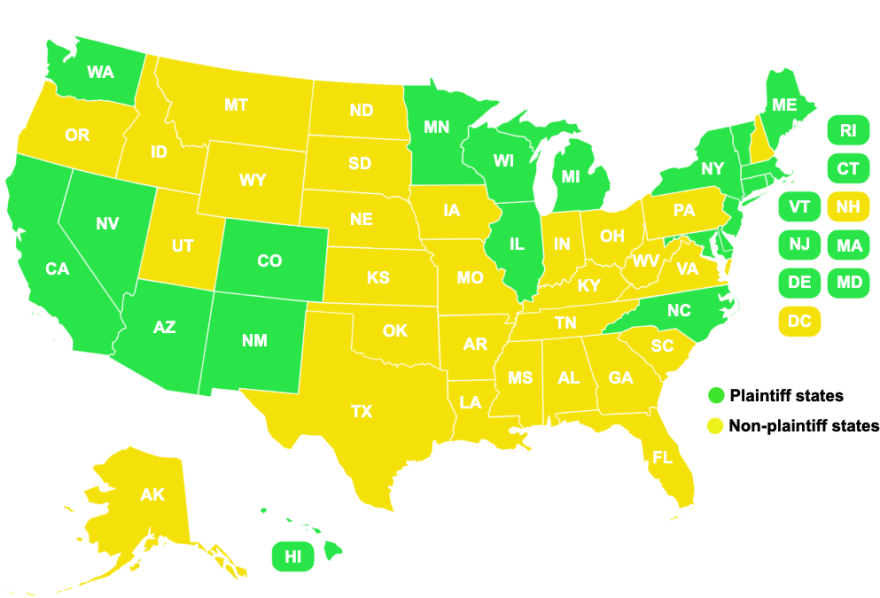Laws could vary state to state regarding which babies born on U.S. soil qualify for citizenship. This comes after the Supreme Court reduced judicial powers last week.
Federal district court judges previously blocked an executive order from President Donald Trump nationwide which eliminated birthright citizenship rights for newborns whose parents are living in the country without legal status, and in some cases temporarily.
But the Supreme Court ruled those judges went too far by issuing national, or universal, injunctions. This could mean only the states who sue the U.S. government get relief from the president’s order.
In this case, that includes Colorado, Arizona, Nevada, New Mexico and 18 other states. Wyoming, Idaho, Montana and Utah are among states that did not sue, so the president’s order could go into effect in those places on July 27.

Colorado Attorney General Phil Weiser said he’s fighting in court to prevent this patchwork system.
“It would be a recipe for chaos to have Colorado be covered by this injunction, but not Wyoming because Wyoming's not suing,” Weiser said on Colorado Public Radio. “If someone's born in Colorado but lives in Wyoming, are they a birthright [citizen] or not?”
University of Wyoming Associate Professor of Law Jerry Fowler said he is sympathetic to the Supreme Court’s ruling on universal injunctions, since this has been a “tremendous expansion of judicial power.” The use of these national rulings from district court judges has exploded over the past decade.
Still, Fowler disagrees with having two different systems of citizenship.
“I think there’s gotta be one law of citizenship that applies all over the country,” Fowler said. “I don't see how you can have one law in Colorado and another law in Wyoming. Then you have people moving back and forth. It's an administrative nightmare.”
The case will continue to play out in lower courts. Some supporters of birthright citizenship are now turning to class action lawsuits to seek nationwide relief.
This story was produced by the Mountain West News Bureau, a collaboration between Wyoming Public Media, Nevada Public Radio, Boise StateCRED Public Radio in Idaho, KUNR in Nevada, KUNC in Colorado and KANW in New Mexico, with support from affiliate stations across the region. Funding for the Mountain West News Bureau is provided in part by the Corporation for Public Broadcasting.





